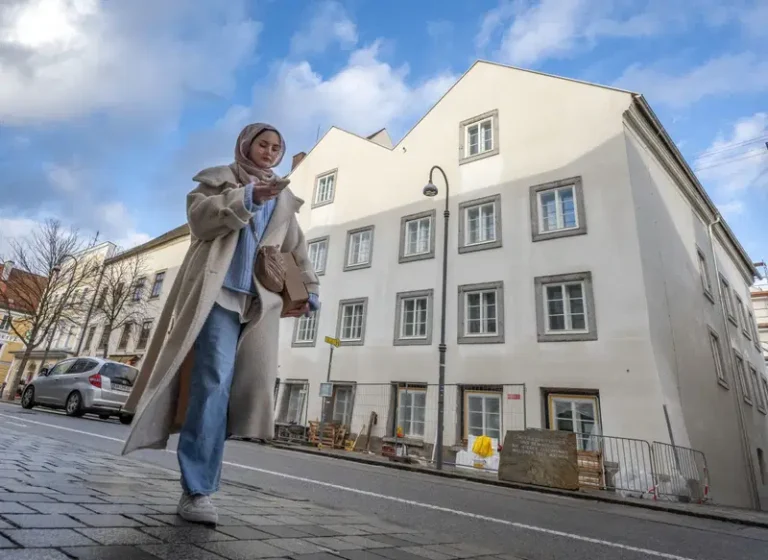
Increased cultism at basic and secondary school levels have become worrisome in Akwa Ibom State, leading to concerns about failure of the government and parents in playing their roles, BASSEY ANTHONY reports from Uyo.
Government-owned primary and secondary schools in Akwa Ibom State are fast becoming initiation and training centres for notorious cult gangs, drug addicts, armed robbers, and rapists, rather than citadels of learning.
Recent cult fights among rival cult groups in some public schools have raised grave concerns among parents, school authorities, security agencies and other stakeholders in the state and beyond.
Deadly clashes between students of Uyo High School and Government Technical College, Ewet, among others, have become a recurring decimal. The frequent violent face-offs are often cult-related.
Investigations have revealed that notorious cult groups operating in the state have great influence and membership from pupils and students in primary and secondary schools.
However, few heads of schools have been bold enough to cry out over the menace of cult activities in their schools. Some are indifferent or too busy to address the problem.
Recently, the Principal of Community Secondary School, Idung Iniang, in Eket Local Government Area, Mr. Inok Abraham, cried out that his school had become a den for all manner of hoodlums, including armed robbers and cultists.
Abraham said the school was used as initiation ground for cultists and operations of hoodlums and armed robbers.
His words: ‘’There is no perimeter fence in the school and because of that thieves, hoodlums and cultists make this school their abode.
“The school is terrible or what I may call a strong hold for cultists. They come here to initiate children even while the classes are going on in the afternoon.
“You will see the cultists from the bush with mufti entering the school premises. While you are running after them this way they go out the other way,” he said.
“I have reported the case to the security agency and I had to swear affidavit in the court that armed robbers cart away everything that makes a laboratory.
“I had to pay money to hire equipment for sciences during the West Africa Senior School Certificate Examination (WASSCE) in 2020, and after the examination, I had to return the equipment to the store we hired from,” he explained.
He appealed to the state government to build perimeter fence in the school to secure the students and environment.
Last week, cultists threatened the Principal of Uyo High School, Mr. Michael Iwok with all sorts of fetish objects. Fresh pepper, palm oil droplets, peeled cooked egg, palm frond, a piece of red cloth, rope and ten naira note were on dropped at the entrance of the principal’s office.
The school located along Oron Road, in the heart of Uyo, the state capital, was thrown into pandemonium as the cultists believed to be students, gave the principal 24-hour ultimatum to recall fellow cultists who were suspended from police custody.
Following the incident, the government through the Chairman, Akwa Ibom State Secondary Education Board (SSEB), Dr. Ekaette Ebong Okon, announced the closure of the school.
Though the school was shut down, the student cultists had already wrecked public facilities, including a petrol station opposite the school.
To check cultism the government identified and proscribed 33 cult groups and Governor Emmanuel Udom signed and brought into force the Cultism and other Violent Behaviour Prohibition Order of 2018.
The proscribed groups included: Vikings, Black Axe, KKK; Buccaneers, Mafia, Luttox (Junior Black Axe), Debam; Dew Pirates Confraternity, Icelanders, Red Skins, Pirates, Amoc, Akwa Marines; and Utoto Groups – known for Advanced Fee Fraud.
However, stakeholders have blamed poor parenting or lack of it, government’s ineptitude and poverty for the worsening spate of cultism in public schools.
State Chairman of the Civil Liberties Organisation, Mr. Franklyn Isong, said the problem of cultism and anti-social behaviours in schools was worse than it appears.
He said: “The problem has to do with lack of attention given to these children. There is no proper parental upbringing. The current economic situation in the country is also part of the problem.
“Most of the pupils in public schools are not living with their parents. Some of them are living with their guardians, so you will see them hawking and roaming the streets immediately after school hours and, in some cases, during school hours.
“Secondly, teachers and school heads do not pay attention to students. Because of inadequate welfare by government, teachers resort to hawking wares in school instead of paying attention to the academic and moral life of pupils and students.
“The Ministry of Education and the Ministry of Social Welfare which ought to pick up the students from the streets and give them proper orientation in the form of workshops have failed in their responsibility.
“I know of schools in the state where the head teachers don’t even care about what is happening in their schools.”
On what security agencies are doing to stop cult initiations in schools, Isong said: “Security agencies can only work on information. Like I told you the head teachers don’t even care.
“They are the ones to give out information to security agencies to be able to pick the errant children and caution, arrest and keep them where they should be and then reform them. But when they don’t play their role what do you expect the security agencies to do?
“I know of schools in this state where female students are beingt raped and sexually harassed daily by teachers and school heads. We the CLO are still investigating the matter.”
A parent, Mrs. Deborah Ekpo however said parents were not entirely to blame. She decried the negative influence of the social media and peer groups on children, factors she claimed have contributed to the problem of cultism in schools.
Mrs. Ekpo, a mother of three of boys, said, ”I don’t parents should be solely blamed for the problem of cultism. We as parents try to bring up our children in the proper way but most times the character they exhibit is different from the discipline we give them.
An activist and human rights lawyer, Mr. Inibehe Effiong, blamed the government for not doing enough to meet the needs of public education.
“If you look through the entire state you will see that government has abandoned public education. Teachers are poorly remunerated, the facilities are not there.
“All that government does when these crises arise is that they close down the schools and nothing is heard about it anymore. Those who are supposed to take responsibility to ensure that cultism is stamped out of public schools are not living up to their responsibilities,” he said.
Governor vows to stamp out cultism
Governor Udom Emmanuel is aware that cultism has become a menace in schools and has promised to eradicate it. However, he said parents should join hands with government to correct the ills in the society.
Speaking during a special thanksgiving service to mark the retirement of the Chief Judge of the State, Justice Godwin Abraham, at the Redeemed Christian Church of God on Sunday, he urged parents to model a Christ-like life based on morality and values to their children to reduce cultism in the society.
“I am sure, in our days, we didn’t hear cultism in secondary school, but these days cultism is in secondary schools and if care is not taken, primary schools. It is absolute rubbish and we need to kill that monster in our state, else those who are cheering it now will regret it.
“It is the task of everybody, parents and guardians to join to fight that monster. Anywhere God has a promise, the devil will always drop something so that the promise will not be fulfilled. I want to believe the devil will not drop that in our land,” he said.
Nevertheless, the Akwa Ibom Commissioner for Education, Mrs Idongesit Etiebet, said the government would not reveal its strategies and tactics to curb cultism in public schools.
She said since cultism was a security issue the government was very circumspect in its approach in tackling the ‘monster’.
Etiebet, however, said the government was mindful of the security challenges in the country; cultism included, and had accordingly solicited the cooperation security agencies.
She said one of the security measures adopted by government was the statewide perimeter fencing of schools. (Nigerian Tribune)








705022 213930Hey! Good stuff, do tell us when you finally post something like this! 283904
853199 126925Thank you for having the time to discuss this topic. I truly appreciate it. Ill stick a link of this entry in my site. 275374